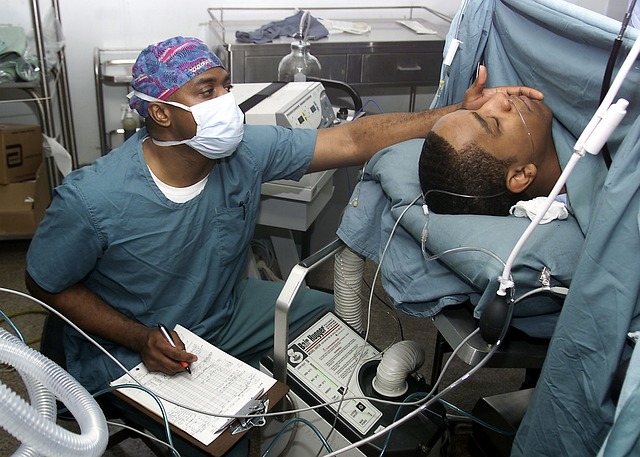Ovarian cystectomy provides symptom relief but impacts fertility; pregnancy options include natural conception, IVF, or advanced treatments. Post-operative care focuses on preserving ovarian function and fertility through methods like egg freezing and specialized surgical techniques. Recovery involves rest, pain management, and medical guidance; discussing fertility effects with healthcare providers is crucial for informed family planning decisions. Individuals should explore various pregnancy options post-cystectomy, weighing benefits and risks with medical professionals to determine the best course of action.
“Exploring the intricate relationship between ovarian surgery and fertility is paramount for those navigating potential reproductive challenges. This article delves into the multifaceted aspects of understanding fertility impacts, focusing on ovarian cystectomy and its potential effects. From uncovering the complexities of cystic surgery to exploring preservation methods, we guide readers through recovery insights and post-surgical decisions. By examining pregnancy options after ovarian cystectomy, this resource empowers individuals to make informed choices, fostering hope for future family planning.”
Ovarian Cystectomy: Uncovering Potential Fertility Impacts
Ovarian Cystectomy, a surgical procedure to remove cysts from the ovaries, is often recommended for women experiencing pain or discomfort due to complex cysts. While this operation can significantly alleviate symptoms, it’s essential to understand its potential implications on fertility. The impact on fertility after ovarian cystectomy varies based on several factors, including the type and size of the cyst, the overall health of the ovaries, and individual reproductive capabilities.
For some women, especially those with non-cancerous (benign) cysts, the procedure may not affect their ability to conceive. However, in cases where the cysts are large or involve a substantial portion of the ovary, there could be a risk of reduced fertility. Pregnancy options after ovarian cystectomy might include natural conception, assisted reproductive technologies (ART), such as in-vitro fertilization (IVF), or other advanced treatments depending on the specific situation and medical advice.
Preserving Fertility After Cystic Surgery: Options Explored
After ovarian cystectomy, exploring preservation of fertility is crucial for those who desire future pregnancy options. Depending on the severity and nature of the cyst, surgeons may recommend various approaches to maintain or restore reproductive capabilities. One option is oocyte retrieval, where eggs are extracted from the ovaries prior to surgery, preserving them for future in-vitro fertilization (IVF) treatments. This method offers a chance at pregnancy later in life, as frozen eggs can be thawed and used when the patient is ready.
Another avenue is using advanced surgical techniques to minimize damage to the ovaries during the procedure. For some, this could mean a lower risk of early ovarian failure, potentially delaying the onset of menopause and preserving fertility for an extended period. Additionally, post-operative care and monitoring are essential to support optimal ovarian function recovery, further enhancing the chances of maintaining or regaining reproductive health.
Understanding Recovery and Pregnancy Chances Following Surgery
After ovarian surgery, understanding the recovery process and its impact on fertility is crucial for those considering their pregnancy options. The road to recovery varies depending on the extent of the procedure, with most patients experiencing a gradual return to normalcy over several weeks. During this time, it’s essential to follow medical advice regarding rest, pain management, and any specific post-operative care instructions.
The impact on fertility should also be discussed openly with healthcare providers. While some procedures may not affect future pregnancies, others, like ovarian cystectomy, could potentially reduce egg reserves or alter hormone levels, impacting fertility. Exploring alternative pregnancy options, such as in vitro fertilization (IVF), can be an important consideration for those aiming to start a family post-surgery.
Navigating Post-Surgical Choices for Future Families
After ovarian surgery, such as cystectomy, individuals and their partners often find themselves at a crossroads when considering future family planning. The decision-making process can be complex, especially with various pregnancy options after ovarian cystectomy available. It’s crucial to explore these choices, weighing the potential benefits and risks of each. Some may opt for in vitro fertilization (IVF) as it offers a higher chance of successful pregnancy by directly manipulating egg and sperm outside the body. Others might choose monitoring or waiting to see if natural conception is possible, especially if the surgery was for a benign cyst.
Consulting with healthcare professionals is essential to understand the specific impact of the surgery on fertility and the best course of action. They can guide patients through options like egg freezing, which preserves eggs for future use, or consulting specialized fertility experts. This navigation process requires open communication, thorough understanding of medical facts, and considering personal preferences to make informed decisions about building a family post-surgery.
Understanding the potential impact of ovarian surgery on fertility is a crucial step in navigating future family planning. While procedures like cystectomy may be necessary, exploring preservation methods and considering post-surgical pregnancy chances can empower individuals to make informed decisions. By delving into available options, from advanced surgical techniques to fertility treatments, patients can confidently chart their path towards building families, ensuring that even with ovarian challenges, achieving pregnancy remains a feasible goal.
